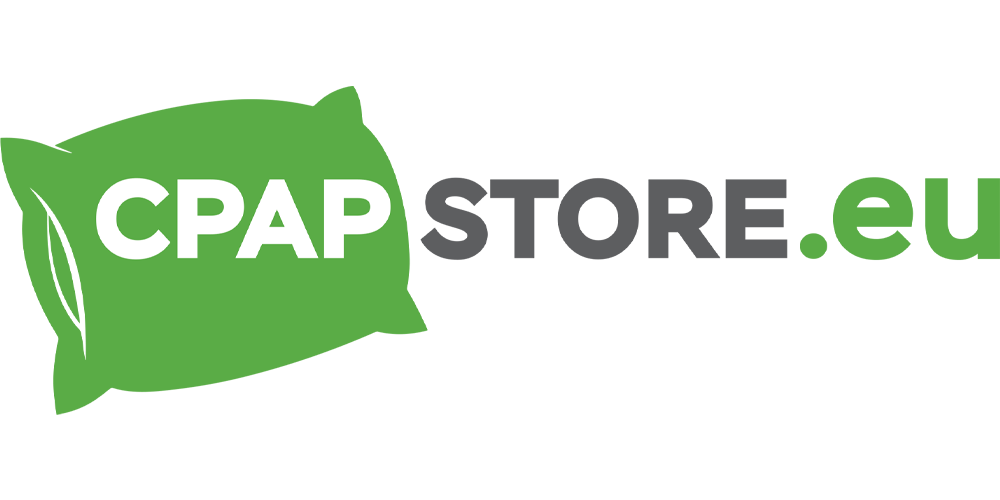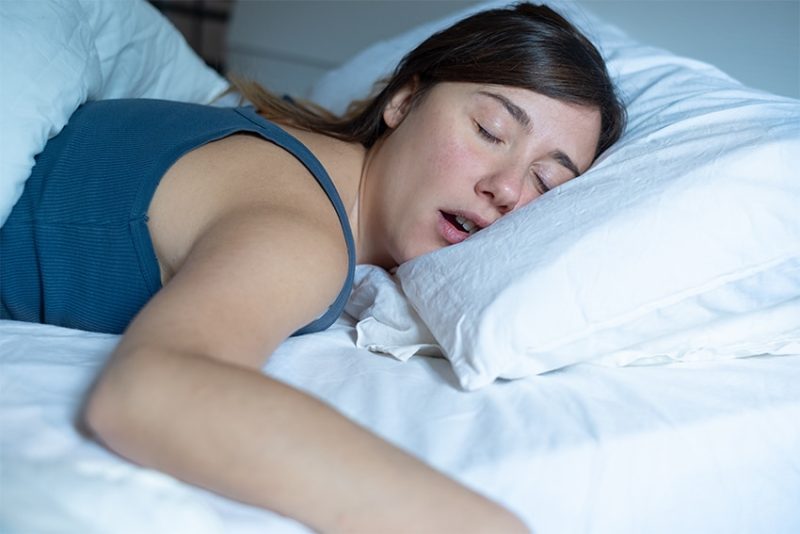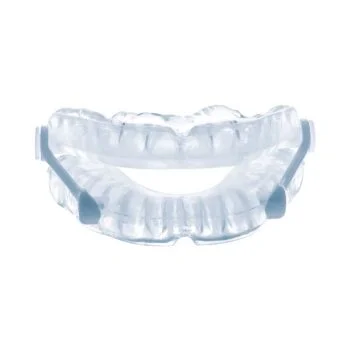Why do we snore? Proven Effectiveness with Oniris Anti-Snoring Device
When you sleep, your muscles relax. This relaxation of the muscles reduces the space in the airways and limits the amount of air you breathe in to supply oxygen to the lungs. The airflow accelerates, and the relaxed tissues start to vibrate, which causes the snoring sound.

Sometimes the pharynx is completely obstructed, which causes respiratory failure or sleep apnoea that can last for 10 seconds or more. This phenomenon can repeatedly occur several dozens or even hundreds of times a night; in such cases, it is called Obstructive Sleep Apnoea Syndrome (OSAS).
This sleep disorder lowers the levels of oxygen in the blood and causes many unconscious micro-awakenings. It can have serious consequences (hypertension, cancer, stroke, depression, cardiovascular disease, fatigue and sleepiness, impaired libido, etc.), leading to premature death.
However, according to the French health authorities, 90% of people with sleep apnoea are unaware of their condition and are not treated. If you are suffering from sleep apnoea, we recommend that you should consult a specialist doctor.
Why snoring can be more severe than you thought
Everyone is familiar with snoring, and it is incredibly embarrassing for you, your partner and those around you.
But there is something much less known and much more dangerous, of which snoring is often a sign: obstructive sleep apnoea (OSA). It is a partial or total obstruction of the passage of air in the pharynx during the night. Specifically, your breathing is blocked for 10 seconds or more (as if you held it in). And this can be repeated dozens or hundreds of times per night. This causes micro-awakenings. And a drop in the oxygen rate in the blood. You sometimes feel intense fatigue, and the accumulation of which becomes dangerous (particularly when driving). But this is not all: high blood pressure, cancer, stroke, depression and libido problems, etc. The consequences can be severe and cause premature death. The problem is that sleep apnoea is underdiagnosed. According to the sleep report by the Ministry of Health and Solidarity (2006), 85% to 90% of patients are NOT treated. And therefore, unaware that they are suffering!
If you are suffering from sleep apnoea, it is important that you should consult a specialist doctor.
The consequences of sleep apnoea in figures
- The risk of high blood pressure is multiplied by 5, and 40% of people with high blood pressure suffer from apnoea.
- Risk of coronary heart disease multiplied by 5
- Risk of atrial fibrillation multiplied by 4
- Risk of ventricular tachycardia multiplied by 3
- The risk of stroke increased by 60%, and 60% of people affected suffered from sleep apnoea.
- Cancer risk multiplied by 4.8 in severe cases
- Risk of type 2 diabetes, twice as frequent among snorers and four times more among those with sleep apnoea
- Risk of Alzheimer’s disease, which appears ten years earlier among snorers and those with sleep apnoea
- Risk of depression multiplied by 1.6 to 2.6 depending on the severity of the apnoea
- Risk of road traffic accidents and in the workplace multiplied by five.
Mandibular advancement devices, is this treatment recognised by the medical community?
For several decades now, clinical studies have shown that mandibular repositioning devices are effective against snoring and sleep apnoea.
Of course, other treatments are available. Surgery can be effective, but it is costly, involves risks and does not guarantee results even though it is final. Nasal dilators may help some snorers if their nasal breathing is limited, but snoring is not the main cause. And throat lubricants (sprays or lozenges) do not work after a few minutes and in cases of very light snoring.
Mandibular advancement devices are generally recommended as the first-line treatment for snoring and sleep apnoea* by Americans, Europeans, Japanese, etc. Sleep Associations.For cases of mild to moderate sleep apnoea.
For cases of sleep apnoea, mandibular advancement devices are recommended for cases of rejection or in association with continuous positive-pressure machines. For cases of sleep apnoea, seek advice from your doctor.




